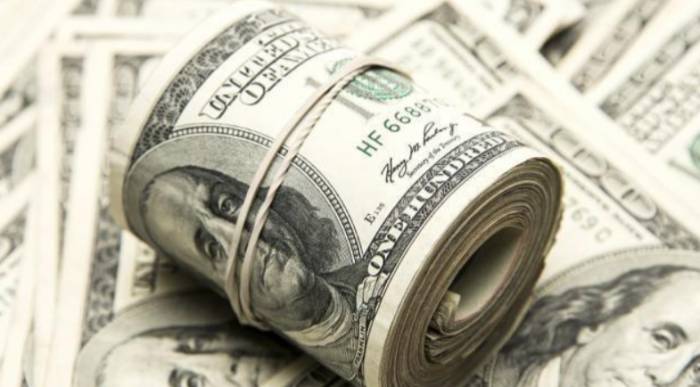In February, due to expectations that the Federal Reserve would raise interest rates again in March, the US dollar index rose from a low of 100.8 to 106.
However, unexpectedly, after entering March, even though the Federal Reserve ultimately raised interest rates as planned, the US dollar index continued to fall, currently retreating to 102.
It turns out that this was another failed interest rate hike.
Not only did the US dollar not account for it, but funds also continued to flow out of the US market, on the contrary, a considerable amount of capital flowed into Chinese assets.
01, US dollar falls
This time, the Federal Reserve raised interest rates again, partly to affect the exchange rates of other countries' currencies. But the current effect is not so, after the rate hike, the US dollar's own exchange rate has fallen significantly.
The exchange rate of the Chinese yuan against the US dollar has risen against the trend by more than 900 points in March.
Plus, it is very likely to exceed 1,000 points on the last trading day.
In fact, it is not only the Chinese yuan that is rising, but other non-US currencies are also rising, the Japanese yen has risen by 2.3% this month, and the euro has even risen by 3.2%, and it has now rebounded to 1.09.
The United States hopes to suppress the exchange rates of other countries, it seems that it has not been successful.02, Capital Flight
The Federal Reserve's continuous interest rate hikes over the past year also aimed to attract investors to put more funds into the United States. However, due to the ongoing rate increases, interest rates are continuously rising, leading to a growing banking crisis in the United States, which has resulted in a significant outflow of capital from the country. This could be considered a paradox in economics. The United States has been raising the federal funds rate with the original intention of attracting funds into banks or the bond market. But now, due to bank bankruptcies, a substantial amount of deposits are flowing out of banks, and a considerable portion of the capital leaving the United States has found its way into China.

On the other hand, although the yield on bonds has been continuously increasing, it is equally unattractive because neither U.S. Treasury bonds nor U.S. bank bonds are considered safe choices for investors anymore; instead, they are perceived as risky traps.
03, Inflation Persists
As for the Federal Reserve's claim of controlling inflation through interest rate hikes, it is even more destined to fail. The continuous interest rate hikes in the United States have not been very effective in curbing inflation. In fact, the inflation in the United States is a result of its previous monetary policy, where the country has been continuously printing and injecting a large amount of money into the market over the years, leading to rising prices and inflation.
Now, in order to suppress inflation, the United States has no choice but to opt for interest rate hikes. However, the outcome of these hikes indicates that the Consumer Price Index has only decreased by 2 percentage points, still not meeting the Federal Reserve's 2% target.Various data indicate that, in fact, prices have not fallen.
04, Chinese assets are sought after
It is precisely because the Federal Reserve has repeatedly raised interest rates, but has failed to control inflation and now cannot continue to push up the US dollar index, that many international funds, in order to avoid suspicion and also for safer returns, have begun to look for new markets.
In the last two consecutive trading days, overseas funds flowing into A-shares through the northbound capital have exceeded 4 billion, and the cumulative amount for the two days has exceeded 9 billion.
Overseas funds are once again beginning to flow into the Chinese market rapidly.
The Hang Seng Index and the Hang Seng Technology Index in the Hong Kong stock market have also rebounded significantly recently, indicating that other overseas funds that have not been able to enter the Chinese market have simply chosen to buy RMB assets in the Hong Kong market.
Capital is smart, and currently, the global consensus is optimistic about China's future.